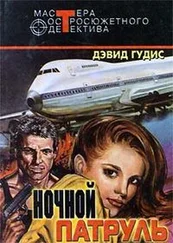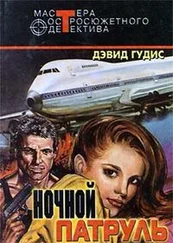Дэвид Гудис - Caravan to Tarim
Здесь есть возможность читать онлайн «Дэвид Гудис - Caravan to Tarim» весь текст электронной книги совершенно бесплатно (целиком полную версию без сокращений). В некоторых случаях можно слушать аудио, скачать через торрент в формате fb2 и присутствует краткое содержание. Жанр: Криминальный детектив, на английском языке. Описание произведения, (предисловие) а так же отзывы посетителей доступны на портале библиотеки ЛибКат.
- Название:Caravan to Tarim
- Автор:
- Жанр:
- Год:неизвестен
- ISBN:нет данных
- Рейтинг книги:4 / 5. Голосов: 1
-
Избранное:Добавить в избранное
- Отзывы:
-
Ваша оценка:
- 80
- 1
- 2
- 3
- 4
- 5
Caravan to Tarim: краткое содержание, описание и аннотация
Предлагаем к чтению аннотацию, описание, краткое содержание или предисловие (зависит от того, что написал сам автор книги «Caravan to Tarim»). Если вы не нашли необходимую информацию о книге — напишите в комментариях, мы постараемся отыскать её.
Caravan to Tarim — читать онлайн бесплатно полную книгу (весь текст) целиком
Ниже представлен текст книги, разбитый по страницам. Система сохранения места последней прочитанной страницы, позволяет с удобством читать онлайн бесплатно книгу «Caravan to Tarim», без необходимости каждый раз заново искать на чём Вы остановились. Поставьте закладку, и сможете в любой момент перейти на страницу, на которой закончили чтение.
Интервал:
Закладка:
David Goodis
Caravan to Tarim
Eleven miles out of Maglaf, the caravan ran into a mob of Bedouins. It started out as a pleasant negotiation with rifles.
Kelney cursed the Arabian sand and the Arabian sun and said, “Who gave them rifles?”
A bullet ran past Tiggs’s cheek and he muttered, “Anyway, it’s better than knives.” Tiggs had three knife scars from the Bedouin blades. He had been working back and forth across the desert for nine years. He was used to this sort of thing.
The Bedouins were moving in now. They knew all about Kelney’s caravan, the spices and perfume and rugs that were being taken to the market in Tarim.
Kelney cursed and started up, wielding his pistol. He tried to leap over the parapet formed by the spine of his camel. Tiggs pulled him down. And the next bullet came sailing across his crouching body and went on going and hit one of the Arabian guides in the forehead.
Kelney was not used to this. He was an American, big but not tall. Five seven and one ninety. He was thirty-six years old and for almost a quarter of a century he had been a drifter. His hair was whitish gold and his eyes were bottle green. His skin was oak. He wasn’t a happy man; he was a bit too tough.
“Don’t waste bullets,” Tiggs said. He was an Englishman. His philosophy was that life was very short and a man had to do as he damned well pleased, provided he didn’t cause grief to nice people. Tiggs was a year shy of forty and looked younger. He was tall and thin and dry. His eyes were colourless. He seemed very tired.
With Tiggs and Kelney there were seventeen honest Arabians. And in a semicircle behind the sand dune thirty yards away there were thirty-odd dishonest Arabians. There was nothing to do but crouch down behind the camels and listen to the bullets whining.
“Let’s rush them,” Kelney said.
“That wouldn’t be wise,” Tiggs murmured. “They’ve got the elevation. They’ve got too much sand in front of them. Wait. Let them use more bullets.”
“They’re killing us all.”
“It’s bad,” Tiggs admitted. “But there’s nothing we can do about it right now.”
“That’s one man’s opinion,” Kelney said. His dark green eyes became black.
In shabby Arabian he shouted an order. The guides whimpered. Kelney repeated the command and the Arabians still held back. He jumped out of cover, and his pistol shoved lead. The Arabians were following him. Even Tiggs joined up. They were running now, running and weaving, some of them falling as they went across the sand. The Bedouins stood up, shot downwards.
Kelney saw Tiggs go down. The Englishman rolled over a few times, and then his face was to the sun and his mouth was open. Blood dribbled from his lips. Kelney didn’t see the need for further study. He concluded that Tiggs was dead and that was unfortunate but then this whole business was unfortunate.
The Bedouins were coming out from behind their dune. Kelney saw his men start to run. The Bedouins were laughing and shooting them down. A bullet tore flesh from Kelney’s thigh.
In another minute, the Bedouins were walking out to get him. They were grinning.
They looked mean, and their women liked to see white men die slowly, with a lot of groans and screaming. Kelney put the pistol to his head and pulled the trigger.
He had forgotten that the chamber was empty. The Bedouins had him, and he was shouting curses, squirming, kicking with his good leg.
The leader came over and told him to be quiet. In fuming Arabic, Kelney told the leader what he could do. But then his eyes became green again and he gave the Bedouin chief a half grin.
The Bedouin was not very tall and not very wide. But his eyes and nose and jaw line were bladelike and hard. His smile was a thread. He wore a lot of green and yellow silk, and shining belts of silvery leather. His men wore rags. Kelney, sizing it up, decided that the leader had a mixture of brains and vanity and could be talked to.
“There is precious stuff in the bags,” Kelney said, pointing with his chin towards the corpses of the camels. His wrists were already behind his back and the Bedouins were drawing the hemp in tight knots.
“Why do you wish me to know that?” the Bedouin leader said.
Kelney shrugged. “It is good to know the joy of looking forward to a treasure.”
“I know all about the treasure. I know all about you.”
Kelney forced a laugh. He looked down to see blood fountaining from his thigh. The Bedouin reached down, arranged a somewhat capable bandage.
Then Kelney was placed on a camel and the Bedouin mob ribboned across the lake of sand.
The leader rode beside Kelney. He said, “I was in Tarim when you brought in the last shipment. I followed you. I know that you have more spices, perfume, rugs-“
“Not quite. But I know where to get more.” Kelney said it wincing.
The Bedouin smiled at the sun. “We will speak of this later.”
It was all very unpleasant, the sticky heat and the smell of too many unwashed camels and the general filth of a Bedouin camp. But Kelney wasn’t thinking in terms of the present. He went so far as to eat and drink from the same big dish shared by a group of Bedouins.
The leader, who had introduced himself as Sheik Nadi, was saying, “You do not mind the food?”
“Why should I?”
“It is bad food. We are very poor. Do you know why?”
Kelney shrugged.
“We are the forgotten people,” Nadi said. “We are kept out of the villages. This tribe was not always nomadic by nature. They took our grazing lands away and now we are slowly starving. That is why we come out on the desert with our rifles.”
“How did you get the rifles?” Kelney’s tone was conversational.
“Theft,” the Bedouin said. “We have been forced to make our own laws. And we will benefit. When our treasure is sufficient, we will take trade away from the stingy merchants in village bazaars. We will be the scornful rather than the scorned!”
“And why not?” Kelney gazed directly into Nadi’s eyes.
Nadi breathed deeply through his nose. He folded his arms and looked past Kelney’s shoulder. “You know where to get these treasures,” he said. “You pay a small price, then you take the stuff to Tarim and reap a high profit.”
“You have it wrong,” Kelney said. “I am not my own employer. I work for Mezar, the richest merchant in Tarim. He sends me to the coast of the Red Sea. There I trade with European vessels that slip up through the Indian Ocean. I can negotiate better than the Arabian tradesmen.”
He was telling the truth. He was seeing hate sparkle in Nadi’s eyes.
“Mezar,” the Bedouin said. “I know him well. A jackal. It is he who controls the city of Tarim. And you work for him.”
“No more,” Kelney said.
Nadi went into his tent, brought out water pipes. For a while the two men sat smoking quietly. Kelney made the first bid. He said, “I will get you more treasure.”
“Of course.” Nadi smiled. “That is why you are alive now. That is why the knives of our women remain idle.”
“I will go to Tarim,” Kelney said. “Mezar will send me out with another caravan.”
“Am I a fool?” Nadi said. “Do I speak with fools?”
“Another caravan,” Kelney said.
“And heavily armed, yes?”
Kelney nodded. “Heavily armed-with blank cartridges.”
“If you would cheat Mezar, you would cheat me.”
“I have more to gain by cheating Mezar.”
Nadi sucked at the water pipe. He looked at Kelney and then he looked at the sand. He said, “You think wisely. Work for me and your rewards will be plentiful. But revenge can come in equal quantity if you attempt betrayal.”
“I wait for your word,” Kelney said.
Читать дальшеИнтервал:
Закладка:
Похожие книги на «Caravan to Tarim»
Представляем Вашему вниманию похожие книги на «Caravan to Tarim» списком для выбора. Мы отобрали схожую по названию и смыслу литературу в надежде предоставить читателям больше вариантов отыскать новые, интересные, ещё непрочитанные произведения.
Обсуждение, отзывы о книге «Caravan to Tarim» и просто собственные мнения читателей. Оставьте ваши комментарии, напишите, что Вы думаете о произведении, его смысле или главных героях. Укажите что конкретно понравилось, а что нет, и почему Вы так считаете.









